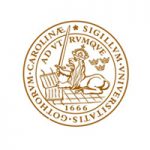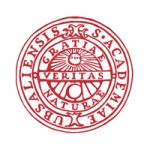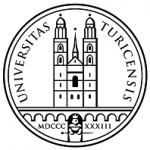
Doctoral student in biology
项目介绍
Lund University was founded in 1666 and is repeatedly ranked among the world’s top universities. The University has around 47 000 students and more than 8 800 staff based in Lund, Helsingborg and Malmö. We are united in our efforts to understand, explain and improve our world and the human condition.
Lund University welcomes applicants with diverse backgrounds and experiences. We regard gender equality and diversity as a strength and an asset.
Subject description
Soil fungi play an important role in global biogeochemical cycles, predominantly through decomposition of complex organic matter (OM). Overall functioning and productivity of the fungal community in soil is significantly affected by interspecies interactions and competition for resources, which, in turn, affects the biogeochemical cycles and fluxes of respired CO2 from soil. These interactions are often mediated by an arsenal of secreted secondary metabolites, which can serve both as means of communication and warfare between the fungi. However, specific ecological roles of the metabolites and the extent to which they affect biogeochemical cycling during fungal interactions remain unknown.
Work duties
This doctoral student position is part of European Research Council (ERC) Starting Grant funded project INTERSPEC, and will specifically address interactions between plant symbiont ectomycorrhizal and litter decomposing saprotrophic fungi. Although typically inhabiting different layers of forest soils, they have been shown to compete for limiting nutrients (e.g. nitrogen (N)) with great effects on the overall organic matter decomposition rates. The goal of the PhD student will be to determine how varying nutrient conditions in laboratory grown co-cultures affect the outcome of this competition as well as composition and function of secondary metabolomes of the competing partners. In addition to the traditionally used agar plate experiments, microfluidic technology-based soil chips will be used for more detailed microscale investigations. They provide an arena for confronting single hyphae of different fungi and optical transparency for microscopic observations of their physiological responses to competition.
Chemical characterization of the secondary metabolites secreted by the fungi in co-cultures will be done via liquid chromatography – mass spectrometry (LC-MS) and nuclear magnetic resonance (NMR) spectroscopy of the metabolite extractions. Transcriptome analysis will be further performed to reveal fungal genes involved in up- or downregulation of the metabolite biosynthesis, but also extracellular enzyme production for organic matter degradation and nutrient acquisition. The PhD student will also work in close collaboration with postdocs working in the project and will apply their developed methodology of surface-enhanced Raman scattering micro spectroscopy to analyze the fungal metabolomes at single-hypha scale in the soil chips.
The main duties of doctoral students are to devote themselves to their research studies which includes participating in research projects and third cycle courses. The work duties can also include teaching and other departmental duties (no more than 20%).
Admission requirements
A person meets the general admission requirements for third-cycle courses and study programmes if the applicant:
- has been awarded a second-cycle qualification, or
- has satisfied the requirements for courses comprising at least 240 credits of which at least 60 credits were awarded in the second cycle, or
- has acquired substantially equivalent knowledge in some other way in Sweden or abroad.
A person meets the specific admission requirements for third cycle studies in soil fungal interactions if the applicant has:
- a master degree in biology, ecology, microbiology with environmental focus, soil science with biological focus, or in other field of relevance for this project.
Additional requirements:
- Experience in laboratory work in general and sterile work with cultures of microbes in particular, or strong interest to learn.
- Experience in setting up an experimental design, conducting data acquisition, analysis and interpretation.
- Very good oral and written proficiency in English.
Assessment criteria
Selection for third-cycle studies is based on the student’s potential to profit from such studies. The assessment of potential is made primarily on the basis of academic results from the first and second cycle. Special attention is paid to the following:
Knowledge and skills relevant to the thesis project and the subject of study. An assessment of ability to work independently and to formulate and tackle research problems. Written and oral communication skills Other experience relevant to the third-cycle studies, e.g. professional experience.
Other assessment criteria:
- Knowledge of molecular biology methods in general and transcriptomics in particular is a strong merit.
- Experience of analytical chemistry techniques (e.g., LC-MS, NMR, Raman or infrared spectroscopy) is a merit, a strong interest to learn is a requirement.
Consideration will also be given to good collaborative skills, drive and independence, and how the applicant, through his or her experience and skills, is deemed to have the abilities necessary for successfully completing the third cycle programme.
Terms of employment
Only those admitted to third cycle studies may be appointed to a doctoral studentship. Doctoral studentships are regulated in the Higher Education Ordinance (1993:100), chapter 5, 1-7 §§.
Instructions on how to apply
Applications shall be written in English and include a cover letter stating the reasons why you are interested in the position and in what way the research project corresponds to your interests and educational background. The application must also contain a CV, degree certificate or equivalent, and other documents you wish to be considered (grade transcripts, contact information for your references, letters of recommendation, etc.).
联系方式
电话: +46 (0)46 222 0000相关项目推荐
KD博士实时收录全球顶尖院校的博士项目,总有一个项目等着你!





